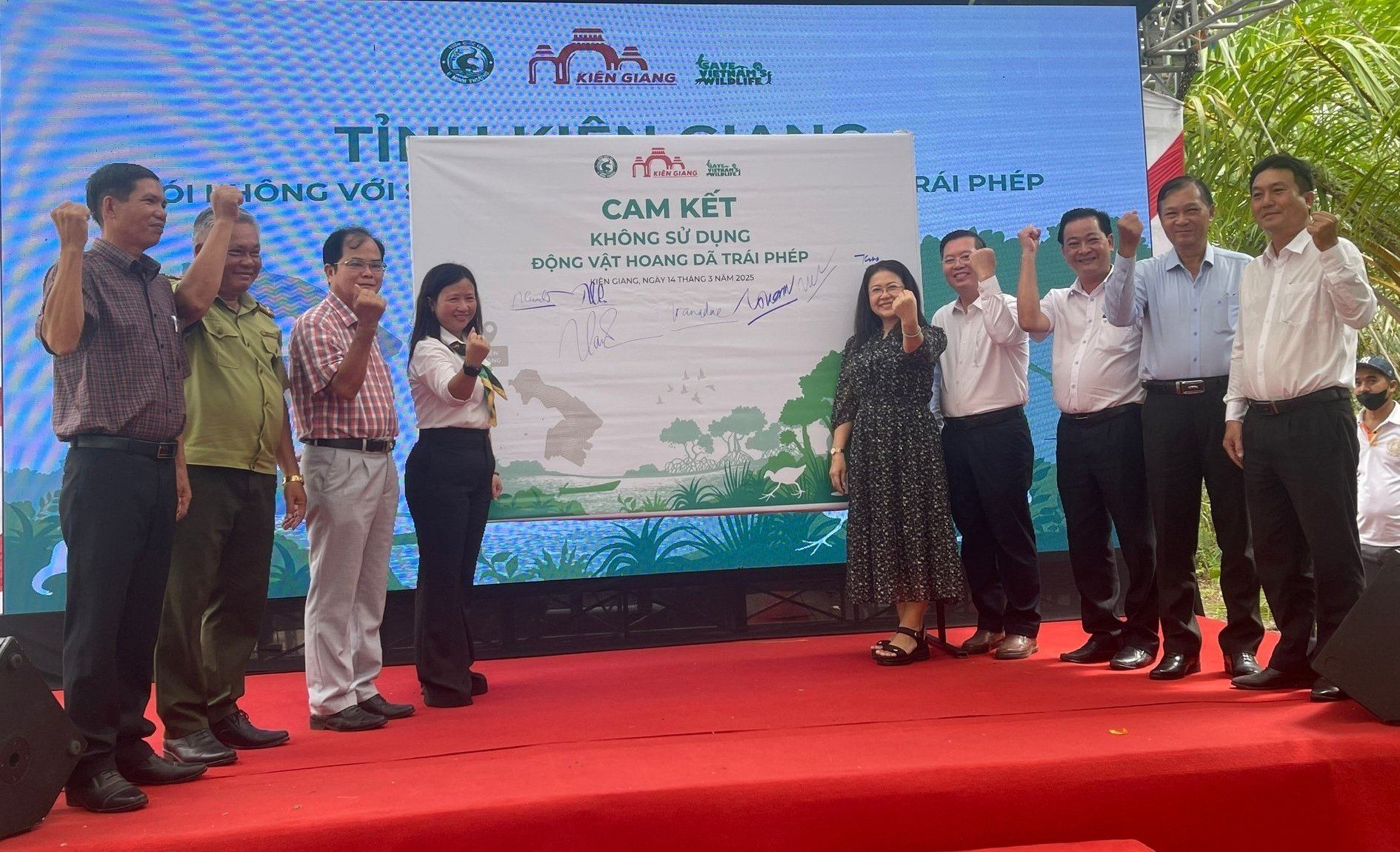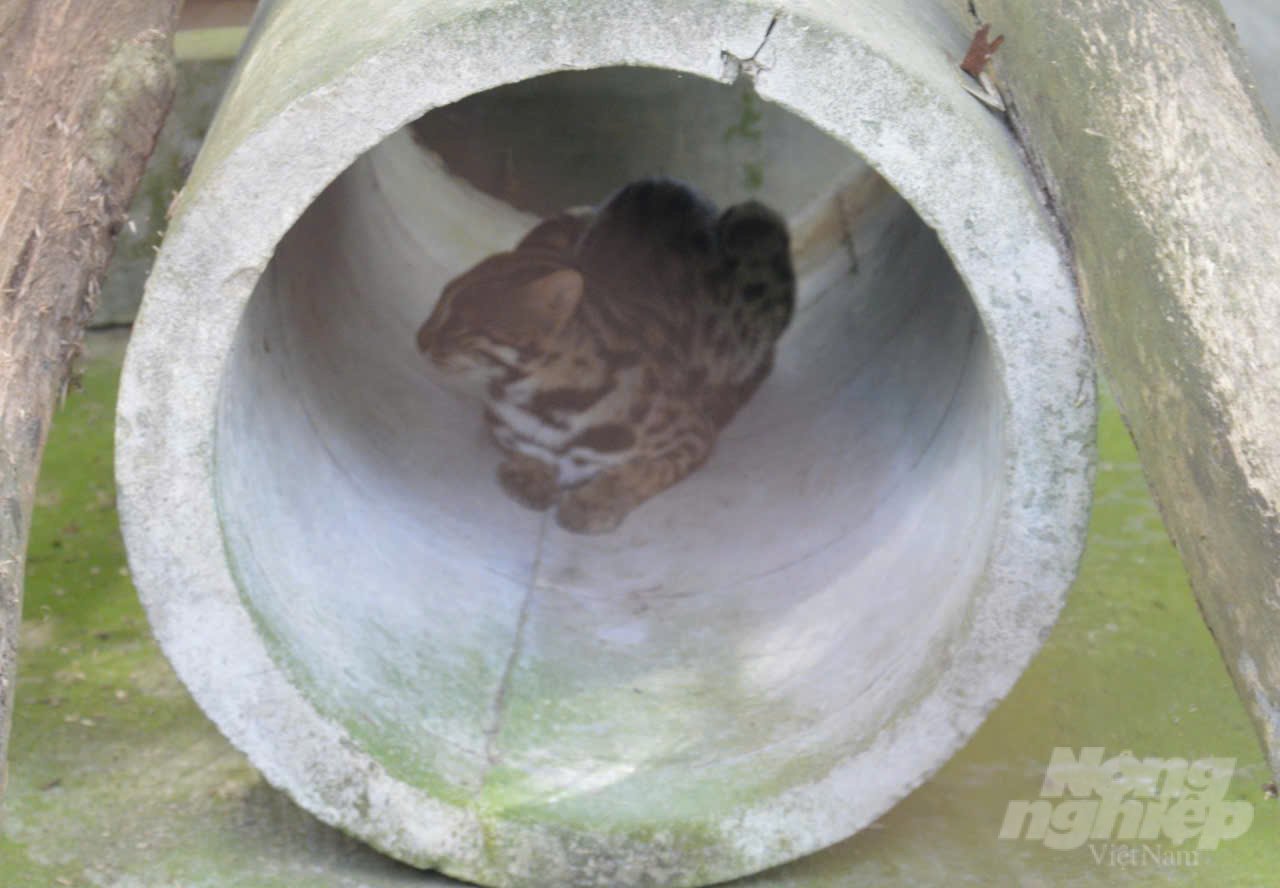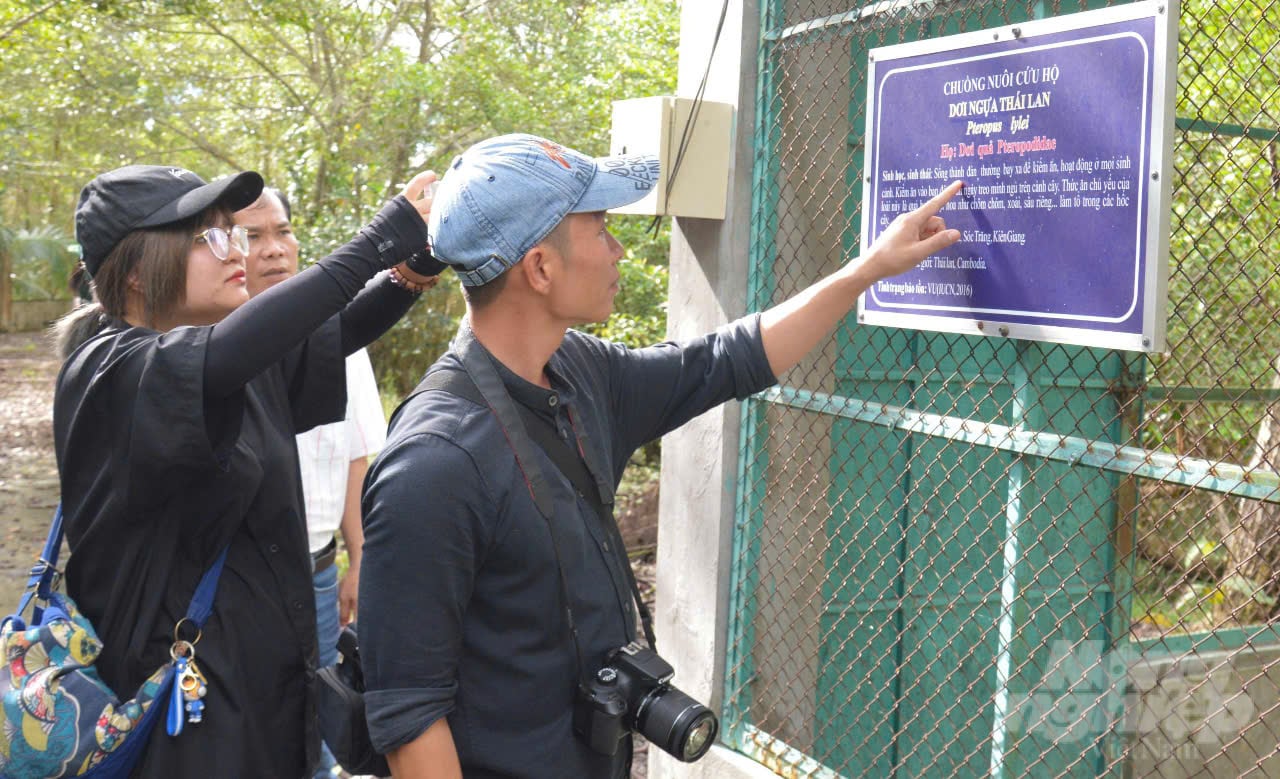June 13, 2025 | 08:19 GMT +7
June 13, 2025 | 08:19 GMT +7
Hotline: 0913.378.918
June 13, 2025 | 08:19 GMT +7
Hotline: 0913.378.918

Delegates attending the workshop on strengthening law enforcement for wildlife protection in Kien Giang province expressed their commitment to not engaging in illegal wildlife consumption. Photo: Trung Chanh.
On March 14, in U Minh Thuong district (Kien Giang province), the Save Vietnam Wildlife, in collaboration with U Minh Thuong National Park, organized a workshop on strengthening law enforcement for wildlife protection. The event attracted over 100 delegates, including environmental protection professionals, forest rangers, forest owners, and local authorities responsible for forest management.
The workshop aimed to raise awareness and responsibility among agencies, organizations, and individuals in complying with legal regulations. It also encouraged participation in detecting, reporting, and strictly handling violations related to biodiversity conservation in the province.
The workshop also addressed several key topics, including solutions to enhance forest protection management and wildlife conservation. It discussed the leadership and guidance of local authorities in interagency coordination for forest protection management, particularly in preventing the illegal use of wildlife. Additionally, the workshop focused on strengthening law enforcement efforts to combat illegal hunting and wildlife trade. These discussions aimed to improve public awareness, education, and outreach efforts on forest and wildlife conservation.

A wildcat illegally captured was rescued and rehabilitated by authorities at U Minh Thuong National Park before being released back into the wild. Photo: Trung Chanh.
Ms. Nguyen Ngoc Lan, Deputy Director of the Save Vietnam Wildlife in Vietnam, stated that in recent years, the illegal hunting, trading, and consumption of wildlife have become an increasingly serious issue not only in Vietnam but also worldwide. Due to illegal hunting and trading, many wildlife species in Vietnam are facing the risk of extinction. Some species have disappeared from the wild in Vietnam, while many others, such as the Javan rhinoceros and Indochinese tiger, are experiencing a severe population decline.
In U Minh Thuong National Park, the fishing cat species has not been recorded in the wild for a long time. These animals are not only symbols of wildlife but also play a crucial role in maintaining the balance of the ecosystem. Their disappearance would severely impact the natural ecosystem and even human health.
According to Ms. Nguyen Ngoc Lan, the wildlife protection campaign in Kien Giang province includes four main objectives:
1. Raising public awareness about the value of wildlife and the severe consequences of its consumption.
2. Strengthening management, monitoring, and control of activities related to wildlife in the region.
3. Promoting measures to protect, restore, and conserve rare and endangered species in Kien Giang.
4. Calling for cooperation and support from agencies, organizations, businesses, and individuals who care about wildlife, working together to protect nature.
Along with the four objectives above, there are four key actions to protect nature and wildlife, including: Refusing to consume or use illegal wildlife products; speaking out against the consumption and use of illegal wildlife products; boycotting restaurants, eateries, and businesses that trade, advertise, or process illegal wildlife products; reporting violations of wildlife protection laws to the authorities for timely action.

Environmental journalists learn about wildlife rescue efforts at U Minh Thuong National Park to promote wildlife conservation. Photo: Trung Chanh.
Mr. Hoang Van Tuan, Director of U Minh Thuong National Park, stated that the park covers a total area of over 21,100 hectares, including a core zone of more than 8,000 hectares and a surrounding buffer zone of 13,069 hectares. The park is home to 334 species of higher plants, 32 mammal species, 53 amphibian and reptile species, 33 fish species, and 209 insect species, including 43 rare animal species listed in the Vietnam Red Book.
Additionally, U Minh Thuong National Park features unique and distinctive wetland forest ecosystems in Vietnam, with high biodiversity value. In recent years, wildlife protection has been a top priority, with enhanced patrols and monitoring efforts to prevent and promptly address violations.
Translated by Kieu Chi

(VAN) Establishment of the Mekong Delta Regional Agricultural Linkage Center, aiming for a closed value chain, deep processing, trading platforms, and international market connectivity.

(VAN) Gia Lai province has recently recorded 460 rare species of animals and plants, contributing to forest conservation and biodiversity planning in the region.

(VAN) Ms. Caroline Beresford, New Zealand Ambassador to Vietnam, expressed confidence that agricultural cooperation between Vietnam and New Zealand will develop sustainably, be climate-resilient, and promote gender equality.

(VAN) Vietnam reaffirms its commitment to international cooperation in fostering sustainable and responsible fisheries while ensuring resilient livelihoods for small-scale fishing communities.

(VAN) More than just a technical solution, science and technology are gradually becoming a cornerstone in Vietnam’s journey toward building a circular economy.

(VAN) The Netherlands is ready to accompany Vietnam in building a green, circular, and sustainable agriculture sector that is resilient to climate change.

(VAN) Minister Do Duc Duy affirmed Vietnam’s 6 strategic goals, prioritizing on conserving ocean ecosystems in tandem with developing a blue marine economy.